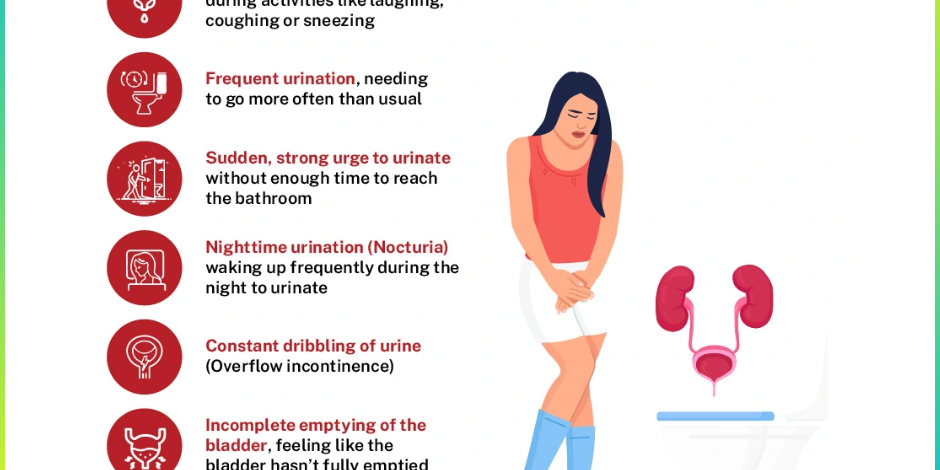Urinary incontinence, the unintentional leakage of urine, is a condition that affects millions of people worldwide. Though often stigmatized, it is more common than many realize and can significantly impact the quality of life if left untreated. Dr. Pawan Rahangdale, a leading urologist in Pune at Urovision Urology Care Clinic, explains the symptoms of urinary incontinence and emphasizes the importance of seeking professional care.
Types and Symptoms of Urinary Incontinence
Urinary incontinence manifests in various forms, each with distinct symptoms. Identifying the type is crucial for effective treatment.
- Stress Incontinence
- Leakage of urine during physical activities that put pressure on the bladder, such as coughing, sneezing, laughing, or exercising.
- Common among women after childbirth or menopause due to weakened pelvic floor muscles.
- Urge Incontinence
- A sudden and intense urge to urinate, followed by involuntary leakage.
- Often associated with an overactive bladder or conditions like urinary tract infections (UTIs), diabetes, or neurological disorders.
- Overflow Incontinence
- Frequent dribbling of urine due to a bladder that doesn’t empty completely.
- Symptoms may include a weak urine stream, straining to urinate, and feeling that the bladder is never fully empty.
- Functional Incontinence
- Inability to reach the restroom in time due to physical or cognitive impairments, such as arthritis or dementia.
- Mixed Incontinence
- A combination of stress and urge incontinence, presenting symptoms of both types.
- Total Incontinence
- Constant or near-constant leakage of urine, often due to anatomical abnormalities or severe neurological conditions.
Additional Symptoms to Watch For
Regardless of the type, urinary incontinence may also be accompanied by:
- Increased frequency of urination (more than 8 times a day).
- Nocturia (waking up multiple times at night to urinate).
- Burning sensation or pain during urination (may indicate a UTI).
- Frequent urinary tract infections.
When to See a Doctor
While occasional urinary leakage can occur due to temporary factors like excessive fluid intake or certain medications, persistent symptoms should not be ignored. Dr. Pawan Rahangdale recommends consulting a urologist if:
- Symptoms interfere with daily activities or social interactions.
- There is pain, blood in the urine, or other unusual symptoms.
- You experience a sudden onset of incontinence without a clear cause.
Diagnosis and Treatment
Effective management of urinary incontinence begins with a thorough diagnosis. This may include:
- Medical history and symptom evaluation.
- Physical examination.
- Tests such as urinalysis, bladder diary, ultrasound, or urodynamic studies.
Treatment options vary based on the type and severity of incontinence and may include:
- Lifestyle Changes: Reducing caffeine and alcohol intake, weight management, and pelvic floor exercises.
- Medications: To calm an overactive bladder or address underlying infections.
- Devices: such as pessaries or catheters.
- Surgical Interventions: For severe cases, including sling procedures or bladder repair surgeries.
Take the First Step to Regain Control
Urinary incontinence is not just a physical issue; it can also affect emotional well-being. The good news is that with proper diagnosis and treatment, most people can manage or overcome this condition. Dr. Pawan Rahangdale and the team at Urovision Urology Care Clinic in Pune are dedicated to providing compassionate and effective care tailored to your needs.
Don’t let urinary incontinence hold you back. Schedule a consultation with Dr. Pawan Rahangdale today to discuss your symptoms and explore the best treatment options.

